Tag Archives: Atlantic Large Whale Take Reduction Team
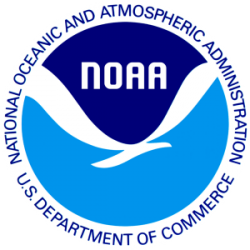
Reminder: Scoping Meeting for the Atlantic Large Whale Take Reduction Plan on Tuesday, 4:30 PM
We will be conducting a virtual scoping meeting to collect public input on modifications to the Atlantic Large Whale Take Reduction Plan to reduce the risk of death and serious injury caused by U.S. commercial fishing gear to endangered North Atlantic right whales in compliance with the mandates of the Marine Mammal Protection Act. Register to attend the virtual public scoping meeting. >Click to read the notice< and access the links. 16:45
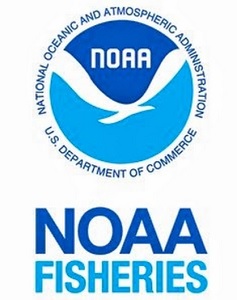
Pot/Trap Fisheries Regulations to Help Save North Atlantic Right Whales Announced
NOAA Fisheries and our partners are dedicated to conserving and rebuilding the North Atlantic right whale population, which is endangered, declining, and experiencing an ongoing Unusual Mortality Event. Entanglement in commercial fishing gear is a primary cause of mortalities and serious injuries of North Atlantic right whales. Working with the Atlantic Large Whale Take Reduction Team, a group of advisors consisting of fishermen, scientists, conservationists, and state and federal officials, we have completed Phase 1 of the modifications to the Atlantic Large Whale Take Reduction Plan to continue to reduce whale entanglements. Today, we are announcing the final rule to modify the Atlantic Large Whale Take Reduction Plan. >click to read< 15:22
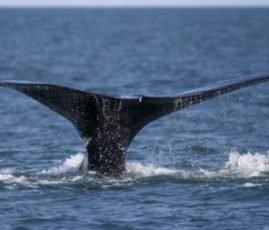
Scientists review divisive whale risk reduction model
A panel of scientists gathered in Woods Hole, Mass., last week to evaluate a controversial “decision support tool” used by NOAA’s National Marine Fisheries Service to design proposed rules aimed at protecting endangered North Atlantic right whales and other large marine mammals from entanglement with fishing gear. Last spring, the NOAA Fisheries Atlantic Large Whale Take Reduction Team (TRT) recommended that the fisheries service adopt new rules that would, among other requirements, force Maine lobstermen to remove from the water 50 percent of the vertical lines used to connect traps on the bottom to marker buoys on the surface. >click to read< 11:07
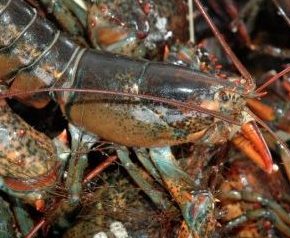
DMR’s answer to whale rules focus offshore
Last week, DMR Commissioner Patrick Keliher announced that after “rigorous scientific analysis,” the department had come up with a new draft plan to address “both the risk to right whales and concerns of fishermen” that is “in keeping with the real risk the Maine fishery presents.” Last March, the National Marine Fisheries Service announced that the risk of injuries to right whales in the Gulf of Maine had to be reduced by at least 60 percent. Last March, the National Marine Fisheries Service announced that the risk of injuries to right whales in the Gulf of Maine had to be reduced by at least 60 percent.,,, The rule also would extend electronic vessel monitoring now required on boats that hold permits to fish for species other than lobster in federal waters to all federally permitted lobster boats. >click to read< 11:27

NOAA answers lobstermen’s critique of whale rules science
NOAA Fisheries released a more detailed response Wednesday to criticisms of the science it used to develop new protections for North Atlantic right whales,,, The response was attached to a letter from NOAA assistant administrator Chris Oliver to Patrice McCarron, executive director of the Maine Lobstermen’s Association. (The letter is attached at the article) >click to read< 14:50
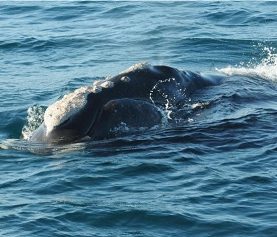
Maine lobster group blames Canada for most right whale deaths, injuries. Perhaps its the data doing the blaming.
McCarron claims Maine lobstermen were pressured to reach an agreement to avoid “jeopardy” from a pending and separate NOAA review of right whale risk-reduction measures for the lobster fishery, a process known as a “biological opinion.” A NOAA spokesperson said a statement from the agency that will respond to the Maine Lobstermen’s Association concerns is expected Thursday.,,, Canadian and American environmentalists expressed disappointment,,, >click to read< 10:11

Gloucester: Lobstermen push against whale rules – ‘We’ve borne the brunt’
The evening began with a presentation from NOAA Fisheries’ Mike Asaro and Colleen Coogan that offered a historical backdrop on the status of the North Atlantic right whale stock and an explanation of the specific protectionist measures adopted in April by the Atlantic Large Whale Take Reduction Team.,, In Massachusetts and New Hampshire, lobstermen are tasked with reducing their vertical lines by 30 percent. In Maine, where there has been significant pushback by state officials and the nation’s most formidable lobster fleet, the target is significantly higher — 50 percent. Then came the comment period and the usual choosing of the sides. Photo’s, >click to read< 22:04
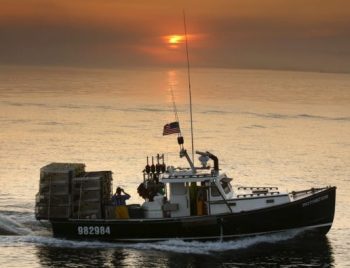
Maine political leaders join lobster haulers to rally against new rules
Gov. Janet Mills and almost all of Maine’s congressional delegation will participate in a rally Sunday protesting new federal regulations aimed at protecting the endangered North Atlantic right whale, but also could cause large-scale disruption in this state’s lobster industry. Maine lobstermen support protecting the whales, whose numbers have dwindled to fewer than 420 during the past decade, but say that the new regulations,,, >click to read< 12:56
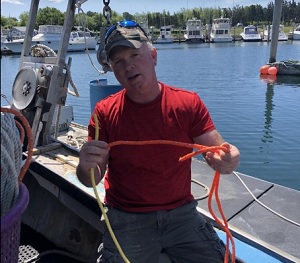
New regulations could put added strain on lobster fishermen
The July 4 holiday has always been a busy time for Rob Martin, a commercial lobsterman who steams out of Sandwich Marina.,,, Seasonal gear bans to protect North Atlantic Right Whales in Cape Cod Bay and surrounding waters usually end May 1, but this year lobstermen in the bay were off the water until May 10,,, More than a month later on June 16, several lobstermen were off the water again, but this time not by state edict. They were in district court in Boston to support a fellow lobsterman who was being sued, along with other groups and government agencies, by activist Richard “Max” Strahan. >click to read< 09:50
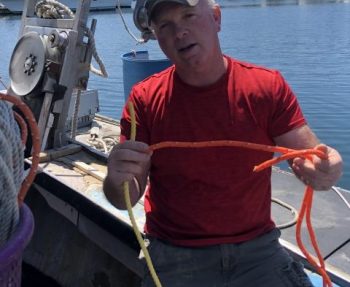
A Life-Long Lobsterman Also Works Hard On Ways To Avoid Whales
Rob Martin was five miles out on his boat, Resolve, lobstering with his crew, and made a call on his way back to port. Martin wasn’t calling his buyer. He was joining a conference call for the National Oceanic and Atmospheric Administration’s Atlantic Large Whale Take Reduction Team, of which he is a member.,, The conversation revolved around installing breakaway sleeves in vertical lines from traps to buoys so whales can snap them on contact and not become entangled. Martin wasn’t required to make those changes, but he already had. He has been working for years ,,, >click to read< 14:20
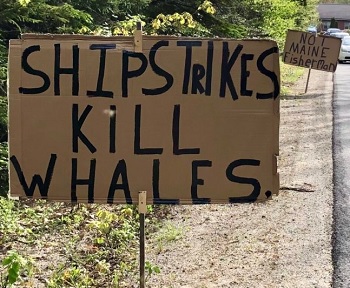
Keliher gives fishermen homework on whale rules
“Feel free to yell at me,” Patrick Keliher, commissioner of the Maine Department of Marine Resources (DMR), told a packed gym at the Trenton Elementary School Tuesday. “But it’s the federal government that’s driving the bus here.” Keliher was in Trenton for the first in a series of meetings with lobstermen up and down the coast to discuss specific ways for the lobster fishery to meet targets established in April by the Atlantic Large Whale Take Reduction Team (TRT), which works under the authority of the Marine Mammal Protection Act. >click to read<11:51
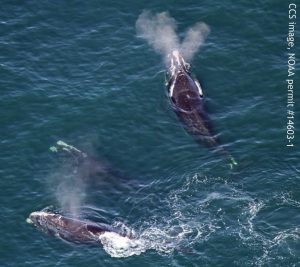
NOAA Team Reaches Consensus on Right Whale Survival Measures
“This is hard work. The Team members brought not only their expertise but also their passion for the people and communities they represent to the table. Everyone understands that there are real and difficult consequences to fishermen as a result of the choices made in this room,” said Sam Rauch, NOAA Fisheries deputy assistant administrator for regulatory programs.,,, The group will meet in Providence, Rhode Island for four days. At the end of the meeting, they hope to agree on a suite of measures that will reduce right whale serious injuries and deaths in fishing gear in U.S. waters from Maine to Florida to less than one whale per year, the level prescribed by the Marine Mammal Protection Act. >click to read<09:15
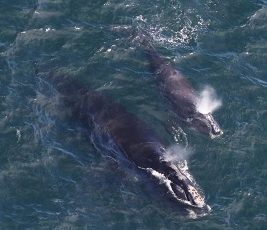
‘Neither country can save the species on its own’ – Reduce amount of rope in water to protect right whales, says U.S. advisory group
The National Oceanic and Atmospheric Administration (NOAA) Atlantic Large Whale Take Reduction Team held four days of meetings ending Friday.
The group proposes the number of lines in the water be reduced by up to 50 per cent in some jurisdictions and that the breaking strength of buoy lines be reduced to 1,700 pounds (771 kilograms) or less. Now the onus is on the U.S. National Marine Fisheries Service to consider acting on those recommendations. While researchers from both countries agree that there needs to be less rope in the water, the recommendations are a different approach to that of the Canadian government, which imposed fisheries closures in the Gulf of St. Lawrence last year and again in 2019. >click to read<09:20
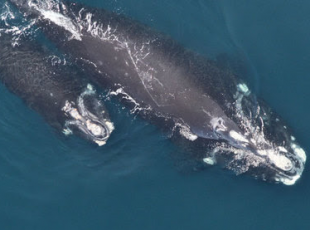
North Atlantic Right Whale – New restrictions placed on New England fishing industry to protect whales
Fishermen across New England are facing new restrictions after a panel of experts convened by the federal government agreed on Friday to a plan to step up protection of the endangered North Atlantic right whale. The group of federal and state officials, scientists, fishermen and environmental advocates created by the National Oceanic and Atmospheric Administration capped a four-day meeting in Providence by reaching consensus on a plan that aims to reduce entanglements in fishing gear, which is the leading cause of injuries to the whale and deaths. >click to read<18:20
New England Stakeholders Agree On Recommendations For Reducing Risk Of Right Whale Entanglements – >click to read<11:16

Jared Golden asks feds to delay fishing restrictions that aim to protect whales
U.S. Rep Jared Golden, a Democrat who represents Maine’s 2nd District, on Tuesday asked federal officials to reconsider regulations meant to protect North Atlantic right whales. Maine lobstermen say the proposed changes would significantly harm their livelihoods. Golden said in a release that he is “deeply troubled” by the manner the Atlantic Large Whale Take Reduction Team (TRT) plans to reduce right whale mortality by 60 percent to 80 percent, and by “the impact its actions may have on the future viability of our lobster fleet.” >click to read<22:50
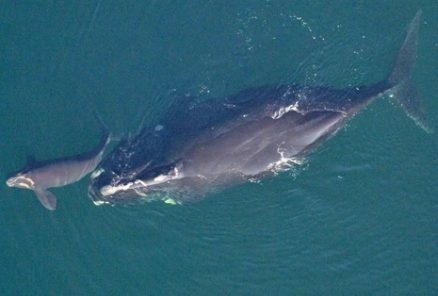
Atlantic Large Whale Take Reduction Team to Focus on Right Whale Survival This Week
On April 23, a group of approximately 60 fishermen, scientists, conservationists, and state and federal officials will come together to discuss ways to further reduce serious injury and mortality of endangered North Atlantic right whales caused by trap/pot fishing gear. The group will meet in Providence, Rhode Island for four days. At the end of the meeting, they hope to agree on a suite of measures that will reduce right whale serious injuries and deaths in fishing gear in U.S. waters from Maine to Florida to less than one whale per year, the level prescribed by the Marine Mammal Protection Act. >click to read<10:01
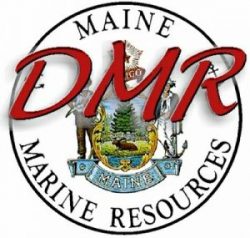
MAINE DMR schedules whale updates, community meetings
Maine’s $485-million lobster industry is facing serious restrictions on the way it operates as a consequence of efforts to protect endangered right whales from extinction. In April, DMR will hold a series of community meetings to talk with lobster industry members about upcoming actions by the NOAA Fisheries Atlantic Large Whale Take Reduction Team and the Atlantic States Marine Fisheries Commission dealing with protection issues. Meetings are scheduled for >click to read<14:28
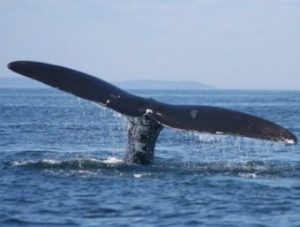
Lobstermen face more gear restrictions to protect whales
Nearly everywhere but up inside Maine’s many bays, fisheries regulators have forced lobstermen to use sinking rather than floating rope for the groundlines that connect traps on the sea bottom, to limit the number of traps set on a trawl to reduce the number of vertical buoy lines in the water and to install “weak links” in those vertical lines so an entangled whale can break loose. All those mandates, which arose out of discussions at NOAA’s Atlantic Large Whale Take Reduction Team (ALWTRT), were hard-fought, expensive and largely unpopular. >click to read<11:22

NOAA Scientists Admit Finding In Recent Right Whale Report Just A Hypothesis
Federal fishery regulators are taking back their claim that newer lobster fishing gear is harmful to North Atlantic right whales.,, They found a 2015 rule requiring less traps with stronger fishing line is making entanglements of right whales worse. However, the agency said that statement is actually not based on science. Patrice McCarron, executive director of the Maine Lobstermen’s Association, said the report is still flawed. >click to read<11:52

Regulators meet next week to consider actions to save right whales which could drastically change lobstering
Proposals to close the fishery in the western Gulf of Maine south of Cape Elizabeth during April, cut the number of seabed-to-surface lines that can entangle whales, and become a ropeless fishery by 2020 are among the ideas to be discussed next week in Providence, Rhode Island, by the team of scientists, fishing groups and animal rights activists tasked with saving the right whale from extinction.,,, In their proposal, The Humane Society of the United States, Defenders of Wildlife and Center for Biological Diversity – which together sued the federal government for not doing more to protect whales from lobster gear – outline a fast-moving plan to transition to a ropeless fishery, requiring all new entrants to the federal fishery be rope-free by Jan. 1, and that all participants in any Atlantic trap or pot fishery, including Maine’s, use only ropeless gear by Jan. 1, 2020. >click to read<09:03
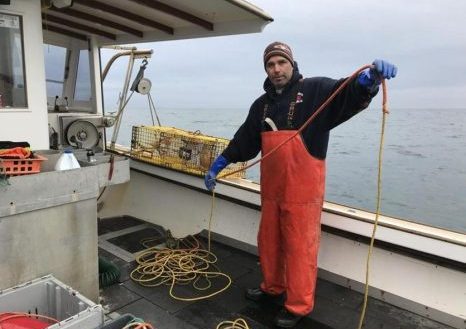
Can anyone save the North Atlantic right whale? A group of South Shore lobstermen say they know what the answer is
By the time Mike Lane shoves off the Cohasset docks, it’s past 8 a.m. — practically lunch time for a lobsterman. But it’s early spring, and the South Shore fisheries are mostly closed, so Lane is keeping a somewhat relaxed schedule. Lobsters tend to hole up for the season several miles farther offshore, and Lane would like to be there, fishing his 800 traps. That area also happens to be a feeding area for North Atlantic right whales — one of our planet’s most endangered species. And so, four years ago, the federal government closed these grounds for much of the winter and spring. That means all Lane can do right now is set a few traps in a small area just outside Cohasset Harbor. >click to read<11:37
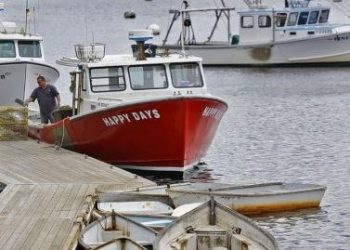
South Shore lobstermen dismayed by failed bid for longer season
Lobstermen are busy loading their boats with traps and buoys and getting their gear back in the water after a three-month closure lifted this week for most of the South Shore. But Marshfield lobsterman John Haviland said he is starting the season feeling more disenchanted than ever after federal regulators turned down a proposal to allow lobstermen to fish year-round with a new rope line designed to reduce the chance of entangling endangered whales. “I’m disappointed that we put three years worth of research and meetings into trying to do the right thing, and it was not successful,” Haviland, president of the South Shore Lobster Fishermen’s Association, said. “It makes you question if you should keep doing the one thing you’ve always done.” Since 2015, federal regulations have banned the use of lobstering equipment from Feb. 1 to April 30 off Cape Cod Bay and beyond, shutting down the local industry for the winter. The goal is to reduce the chances of whales becoming entangled in the gear. click here to read the article 12:09


































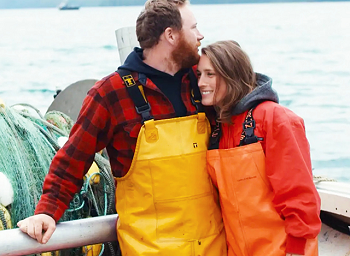
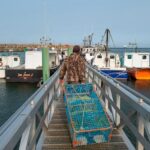
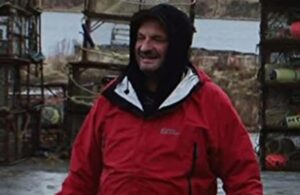
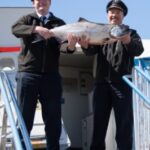

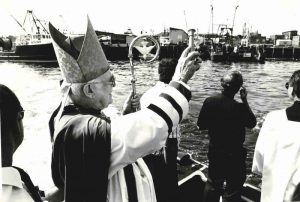

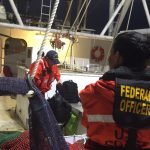
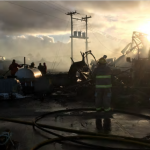
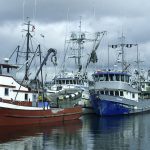



New Proposed Measures to Provide Needed Protections to Whales and less Economic Impact on Lobstermen
NOAA FisheriesNMFS is proposing to make additional changes to its Atlantic Large Whale Take Reduction Plan to help reduce large whale serious injuries and deaths due to entanglement in fishing gear. Click here to read more about proposed measures. The deadline for providing public comments on these measures is November 21. 17:40 The PR version is hereShare this post